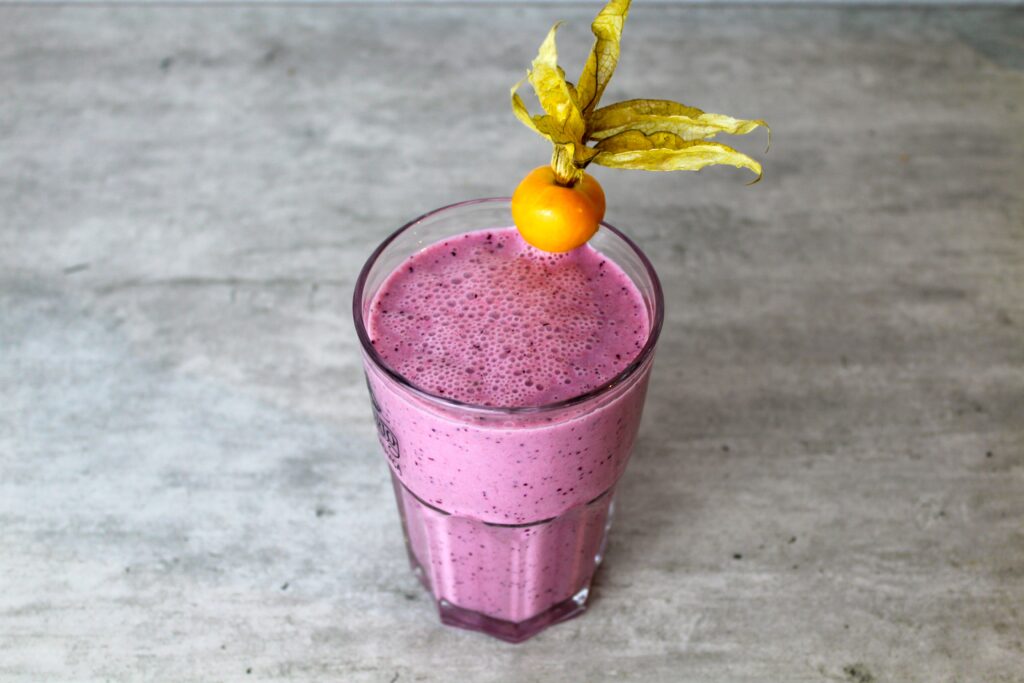Is Spirulina a Superfood? Should we be having it regularly? These are some often asked questions. The answer is, YESSS!!! Spirulina is extremely healthy and has load of benefits. Lets explore them in this article.
WHAT IS SPIRULINA?
Before asking Superfood let us understand what it is.
Spirulina is a type of blue-green algae that grows in fresh water lakes. It is often referred to as a superfood due to its high nutrient content.
Some of the key nutrients found in spirulina include:
Protein: Spirulina is made up of around 60% protein, making it an excellent source of this essential nutrient.
Vitamins: Spirulina is rich in vitamins A, K1, K2, and B vitamins such as thiamine, riboflavin, and niacin.

Minerals: This superfood is also a good source of minerals such as copper, iron, magnesium, manganese, and potassium.
Antioxidants: Spirulina is a rich source of antioxidants, which can help protect cells from damage and reduce inflammation.
Essential Fatty Acids: This algae is a good source of essential fatty acids, such as omega-3s, which are important for maintaining heart health and preventing chronic diseases.
In addition to its nutrient content, spirulina also contains chlorophyll, phycocyanin, and carotenoids, which are all believed to offer health benefits.
HEALTH BENEFITS OF SPIRULINA
1. May Boost Energy Levels and Endurance
Spirulina has been shown to increase energy levels and endurance. In one study, cyclists who took spirulina supplements for four weeks increased their time to exhaustion by 7%.
Other studies have shown that taking spirulina can increase VO2 max, which is a measure of the amount of oxygen your body can use during exercise.
Additionally, one study found that people who took spirulina had lower levels of lactic acid in their blood after exercise, which suggests that it may help reduce fatigue.
These effects are likely due to the high nutrient and antioxidant content of spirulina, as well as its ability to enhance mitochondrial function. Mitochondria are organelles in our cells that produce energy.
2. May Help Lower Blood Sugar Levels
Several studies have shown that spirulina can help lower blood sugar levels.
In one study, people with type 2 diabetes who took spirulina supplements for 16 weeks had significantly lower fasting blood sugar levels than those who didn’t take spirulina.
Another study found that taking 1 gram of spirulina per day for 12 weeks improved HbA1c, a measure of long-term blood sugar control, in people with type 2 diabetes.
Additionally, spirulina has been shown to improve insulin sensitivity and reduce inflammation in people with diabetes.
These effects are likely due to the phycocyanin and other antioxidants in spirulina, which can help protect cells from damage and reduce inflammation.
3. May Reduce Inflammation
Spirulina has been shown to reduce inflammation, which is a major factor in many chronic diseases.
In one study, people with metabolic syndrome who took 2 grams of spirulina per day for 12 weeks had significantly lower levels of C-reactive protein (CRP), a marker of inflammation, than those who didn’t take spirulina.
Another study found that taking spirulina reduced markers of inflammation in people with rheumatoid arthritis.
These effects are likely due to the antioxidants in spirulina, which can help protect cells from damage and reduce inflammation. Additionally, spirulina has been shown to improve gut health, which can also help reduce inflammation.
If you are under any doubts that Superfood, remember that inflammation is cause of way too any problems and this point itself can make it a superfood.

4. May Enhance Brain Health
Spirulina has also been shown to enhance brain health.
In one study, people who took spirulina for 12 weeks had significantly better memory and attention than those who didn’t take spirulina.
Another study found that taking spirulina improved symptoms of anxiety and depression in adults (13).
These effects are likely due to the antioxidants in spirulina, which can help protect cells from damage and reduce inflammation. Additionally, spirulina contains omega-3 fatty acids, which are important for brain health.
5. May Help Lower cholesterol Levels
Spirulina has also been shown to help lower cholesterol levels.
In one study, people with high cholesterol who took spirulina for 12 weeks had significantly lower total cholesterol and LDL (bad) cholesterol levels than those who didn’t take spirulina (15).
Another study found that taking spirulina reduced triglyceride levels in people with diabetes (16).
These effects are likely due to the antioxidants in spirulina, which can help protect cells from damage and reduce inflammation. Additionally, spirulina contains phycocyanin, which has been shown to reduce cholesterol levels.
Since heart diseases are all silent killers, the answer to the question Superfood, should be a firm YES!!
6. May Boost Immunity
Spirulina has also been shown to boost immunity.
In one study, people who took spirulina for 12 weeks had significantly higher levels of antibodies than those who didn’t take spirulina.
Another study found that taking spirulina reduced the number of colds and flu infections in people with a weakened immune system.
These effects are likely due to the antioxidants in spirulina, which can help protect cells from damage and reduce inflammation. Additionally, spirulina has been shown to improve gut health, which can also help boost immunity.
7. May Protect Against Cancer
Spirulina has also been shown to protect against cancer.
In one study, people who took spirulina had a lower risk of developing cancer than those who didn’t take spirulina.
Another study found that taking spirulina reduced the growth of cancer cells and enhanced chemotherapy in people with liver cancer.
These effects are likely due to the antioxidants in spirulina, which can help protect cells from damage and reduce inflammation. Additionally, spirulina has been shown to improve gut health, which can also help protect against cancer.
8. May Promote Weight Loss
Spirulina has also been shown to promote weight loss.
In one study, people who took spirulina for 12 weeks lost significantly more weight and body fat than those who didn’t take spirulina.
Another study found that taking spirulina reduced hunger and increased fullness in people with obesity.
These effects are likely due to the antioxidants in spirulina, which can help protect cells from damage and reduce inflammation. Additionally, spirulina has been shown to improve gut health, which can also help promote weight loss.
Since weight loss is one of the biggest industries in the world, this right here answers our question as to is spirulina a superfood?

9. May Help Lower Blood Sugar Levels
Spirulina has also been shown to help lower blood sugar levels.
In one study, people with diabetes who took spirulina for 12 weeks had significantly lower blood sugar levels than those who didn’t take spirulina.
Another study found that taking spirulina improved insulin sensitivity in people with prediabetes.
These effects are likely due to the antioxidants in spirulina, which can help protect cells from damage and reduce inflammation. Additionally, spirulina has been shown to improve gut health, which can also help lower blood sugar levels.
10. May Reduce Inflammation
Spirulina has also been shown to reduce inflammation.
In one study, people who took spirulina for 12 weeks had significantly lower levels of inflammatory markers than those who didn’t take spirulina.
Another study found that taking spirulina reduced the severity of rheumatoid arthritis symptoms.
These effects are likely due to the antioxidants in spirulina, which can help protect cells from damage and reduce inflammation. Additionally, spirulina has been shown to improve gut health, which can also help reduce inflammation.
So, we hope we answered your queries as to Superfood?
Spirulina is a type of blue-green algae that is rich in nutrients. It has been shown to have various health benefits, including weight loss, improved immunity, and reduced inflammation.
If you’re interested in adding spirulina to your diet, it’s important to choose a high-quality product. Look for spirulina that is certified organic and free of heavy metals. You can find spirulina powder or capsules at most health food stores.
If you’re interested in becoming a Certified Professional Nutrition Therapist, don’t forget to check out our courses HERE

